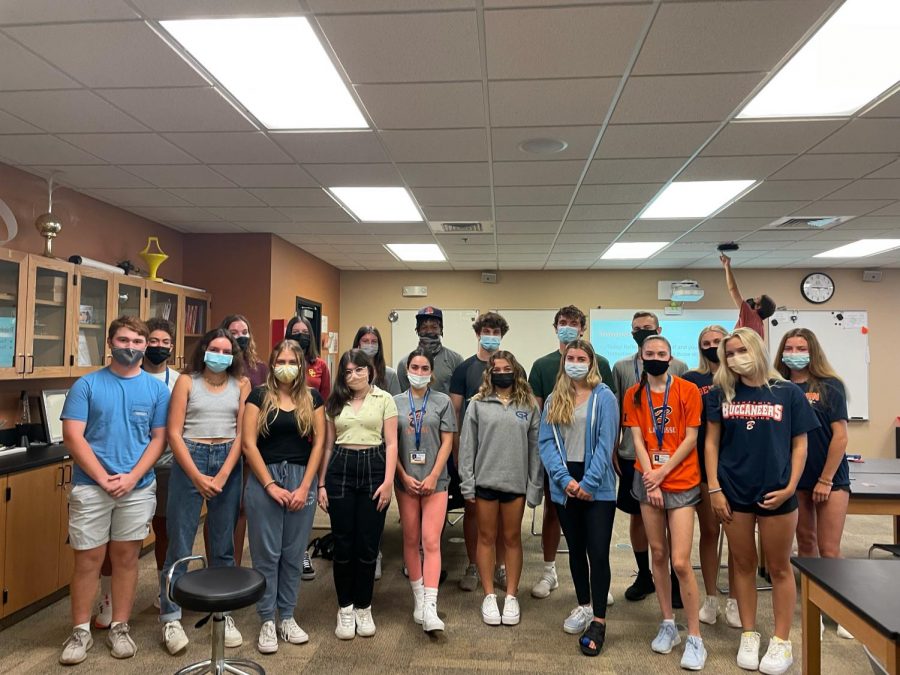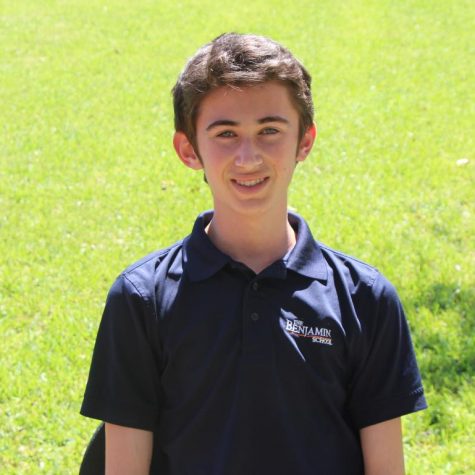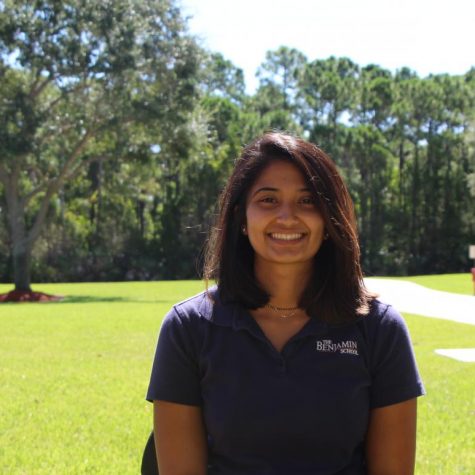New Program Arrives at Benjamin, Aimed to Help Incoming Freshmen
The new program, Peer Advisors, have their first meeting of the school year in order to start their training to fulfill their respective jobs. Dr. James Haley and Dr. Renee Yates are the faculty advisors of the group.
August 17, 2021
The peer advisor program is a new program being introduced to the School this year, led by Science Department Chair Dr. James Haley.
The group, called Peer Advisors, or PAs for short, is made up of strictly rising juniors and will assist faculty advisors to both mentor freshmen and lead advisory meetings. It is a two-year commitment for the students, who will assist the same advisory for those back-to-back years. They are expected to attend the advisory that they assist “at least twice per month”, according to Dr. Haley.
While peer counselors help the students in the Benjamin Upper School community holistically, peer advisors are supposed to work with their faculty advisors to help freshmen easily transition into the high school.
Applications for the program were solicited during early Apr., with current juniors vying to determine the 20 student team. The process included an application form and an interview that allowed positive qualities, like participation in sports and strong academic effort, that would make them a positive role model for members of the Upper School.
The idea was Dr. Haley’s, inspired by a system that had been used at San Francisco University High School, a school that he previously taught at. He enjoyed working with older students to run his advisory for a variety of reasons.
“Although our faculty advisors are excellent, no one knows better the challenges facing freshmen than our own students who went through a similar transition two years ago. As such, they are uniquely situated to provide insights and help the freshmen navigate their first year in the upper school,” Dr. Haley said. “In addition, the program gives our junior PAs an opportunity to develop leadership and group management skills that they can leverage in college and the workplace.”
From the first day of the school year, freshman orientation, PAs will be assisting the faculty and getting to know the students that they will be working with.
“We have a large freshman class joining us this year with students coming to us from a variety of schools, many of whom are moving to a new city or state. Starting a new school, especially high school, can be an intimidating process,” Student Services Counselor Dr. Renea Yates said. “Our peer advisors will assist these students with this transition right out of the gate by being our student leaders at orientation, spending time in advisory sessions, leading team-building activities, joining their groups for lunches, and more.”
Junior Luke Egizio was one of the first to answer Dr. Haley’s calling. “I wanted to apply, so I could help incoming freshmen feel welcome to their new environment,” Egizio said.
However, there are other appealing reasons that Egizio found to apply. Not only did he believe that he could meet new members of the Upper School community, but as a member of the boys’ varsity soccer team, Egizio figured that he could also possibly meet some of his new teammates before the start of the winter season.
“The thing I am most excited for is just meeting the new students, especially if some of them are going to play on the same sports team as me,” he said.
If everything goes according to plan and the program is found to be a success, there is expected to be a new group of rising juniors added every year, so sophomores may find themselves applying to become PAs later this school year.
Dr. Haley’s aspiration is that the PAs can help the freshman towards a more seamless transition into high school. Beyond that, it can also result in friendships made between the PAs and the new students, as well as serve as additional help for the faculty advisors.
“My hope is that [the PAs] will get to know their advisees well, help them adjust to Benjamin’s workload and culture, and serve as cheerleaders for the advisory group,” Dr. Haley said.




